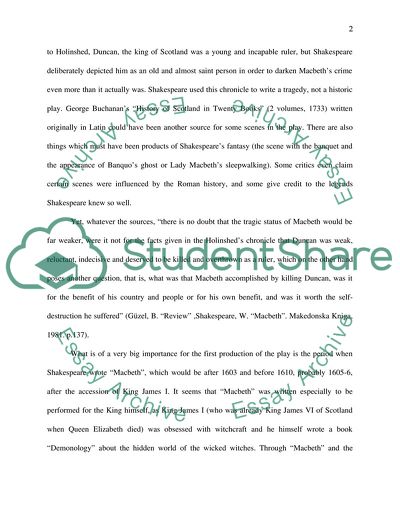Cite this document
(“Macbeth Research Paper Example | Topics and Well Written Essays - 1500 words”, n.d.)
Retrieved from https://studentshare.org/miscellaneous/1560103-macbeth
Retrieved from https://studentshare.org/miscellaneous/1560103-macbeth
(Macbeth Research Paper Example | Topics and Well Written Essays - 1500 Words)
https://studentshare.org/miscellaneous/1560103-macbeth.
https://studentshare.org/miscellaneous/1560103-macbeth.
“Macbeth Research Paper Example | Topics and Well Written Essays - 1500 Words”, n.d. https://studentshare.org/miscellaneous/1560103-macbeth.


